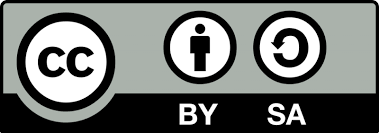Institutional participation of the teachers at the general meeting
DOI:
https://doi.org/10.23824/ase.v0i31.636Downloads
Abstract
The aim of this paper is to learn, in the opinion of non-university teachers, about the importance of the teachers general meetingcompetences for the proper working of the school and the quality of the education, as well as the attention and dedication spent on these competences. . To carry out an exploratory analysis, we have written a specific protocol that was filled in by 2334 teachers from the different stages and /or studies and autonomous communities. The staff highly values the importance of these competences and the appropriation off he attention and dedication by the staff. There are differences regarding sex, ownership of the school and stages and studies. It is convenient to continue analyzing the importance given by the teaching staff to these competencie as well as their fulfillment. The initial and permanent training must consider the involvement of the teachers in the participative structure of the school.
References
Andrés-Cabello, S. y Giró-Miranda, J. (2016). El papel y la representación del profesorado en la participación de las familias en la escuela. Revista Electrónica Interuniversitaria de Formación del Profesorado,19(1), 61-71.
Bolívar, A. (2006). Familia y escuela: dos mundos llamados a trabajar en común. Revista de Educación, 339, 119-146.
González-Granda, J.F. (2006). La participación del profesorado en los órganos de gobierno de los centros docentes. Participación Educativa, 3, 48-60.
Martín-Bris, M. y Muñoz-Martínez, Y. (2010). La participación del profesorado en un proceso de mejora en el marco de "Una escuela para todos". REICE: Revista Electrónica Iberoamericana sobre Calidad, Eficacia y Cambio en Educación, 8(3), 120-138.
Molina-Herranz, J. (2014). La participación en los centros escolares. Un reto para sus componentes y para la inspección educativa. Avances en supervisión educativa, 21, 1-17.
Moliner-García, O., Traver-Martí, J. A., Ruiz-Bernardo, M. P. y Segarra-Arnau, T. (2016). Estrategias que inciden en los procesos de democratización de la escuela. Una aproximación teórica. Revista Electrónica de Investigación Educativa, 18(2), 116-129.
Ordoñez-Sierra, R. (2008). Análisis de las opiniones mostradas por el profesorado de educación primaria sobre su grado de participación en los centros escolares de Sevilla capital. Bordón, 60(2), 139-157.
Osoro-Sierra, J.M. y Castro-Zubizarreta, A. (2017). Educación y democracia: la escuela como “espacio” de participación. Revista Iberoamericana de Educación, 75(2), 89-108.
Pérez-Ruiz, A. (2017). El sentido de la participación docente en escuelas de tiempo completo. Un estudio de caso. Profesorado. Revista de currículum y formación del profesorado, 21(2), 50-66.
Raso-Sánchez, F., Sola-Martínez, T. e Hinojo-Lucena, F.J. (2017). Satisfacción del profesorado de la escuela rural de la provincia de Granada (España) respecto a la organización escolar. Bordón, 69(2), 79-96.
Rivas-Borrel, S. (2014). Formación docente y cultura participativa del centro educativo: claves para favorecer la participación familia-escuela. Estudios sobre Educación, 27, 153-168.
How to Cite
Issue
Section
Published
Keywords:
Teachers participation, teachers general meeting competencies, sex, ownership of the school, teachers training, teachers general meetingLicense

Attribution Share-Alike CC BY-SA
Those authors who have publications with this magazine, accept the following terms:
A) The authors will retain their copyrights, which will be simultaneously subject to the Creative Commons Attribution License that allows others to re-mix, modify and develop on your work even for commercial purposes, provided they credit you And to license their new works under the same terms.
B) The authors will retain the rights of exploitation of the intellectual property of this work, and especially the rights of reproduction, distribution, transformation in any of its modalities and public communication of said work, which will be simultaneously subject to the License Of recognition of Creative Commons that allows others to re-mix, modify and develop on your work even for commercial purposes, provided they credit you and license your new works under the same terms.
Creative Commons Attribution-ShareAlike 4.0 International Public License

